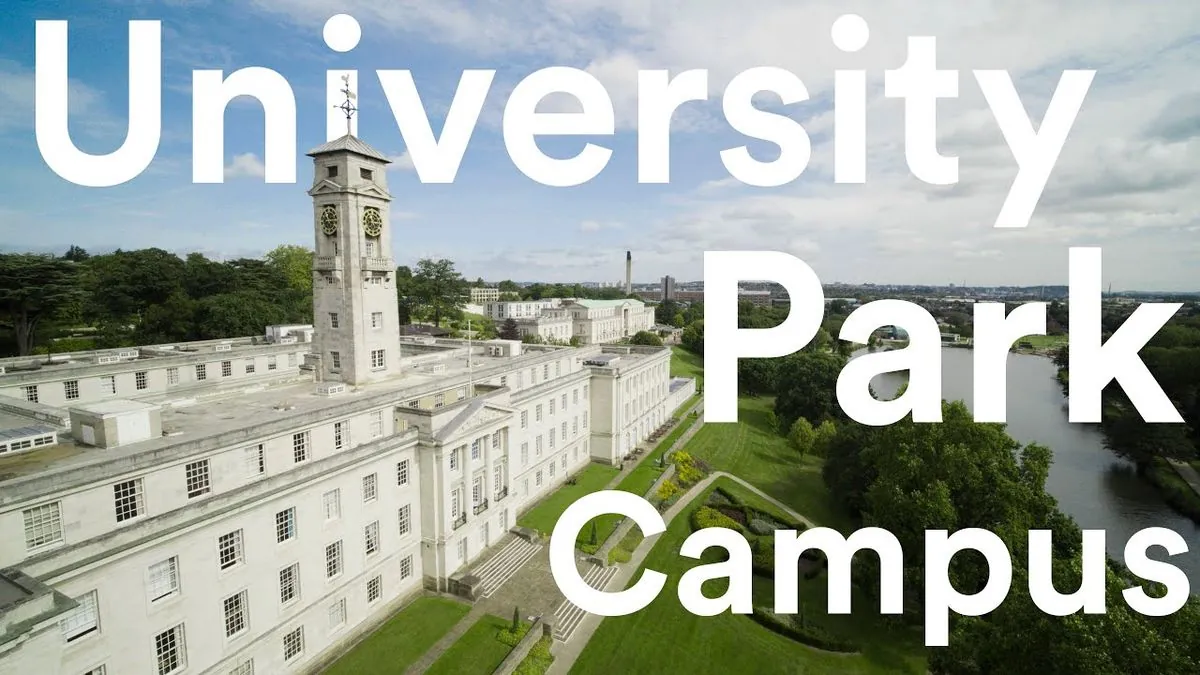Nottingham University Drops "Anglo-Saxon" from Course Titles
The University of Nottingham has removed the term "Anglo-Saxon" from its course titles to address nationalist narratives and decolonize the curriculum. This move reflects a broader debate in academia about historical terminology.

The University of Nottingham has recently made changes to its course titles, removing the term "Anglo-Saxon" in an effort to address nationalist narratives and decolonize the curriculum. This decision reflects a growing trend in academia to reconsider historical terminology and its implications.
Nottingham University, known for its leading courses in early medieval history and literature, has renamed its masters course from "Viking and Anglo-Saxon Studies" to "Viking and Early Medieval English Studies". Similarly, a module previously titled "Research Methods in Viking and Anglo-Saxon Studies" now uses the term "Early Medieval English" instead of "Anglo-Saxon".
This change aligns with similar moves in the United States and other UK universities. In 2023, the University of Cambridge began teaching students that Anglo-Saxons did not exist as a distinct ethnic group, as part of efforts to challenge "myths of nationalism". The following year, Cambridge University Press renamed its long-running academic publication, "Anglo-Saxon England journal", to better reflect the evolving nature of research in this field.
The debate surrounding the term "Anglo-Saxon" has intensified in recent years. Some academics argue that it has become associated with white identity and racist ideologies, particularly in the United States. Others maintain that the term remains useful historically and archaeologically.

The Anglo-Saxon period, spanning from the fall of Roman Britain to the Norman Conquest in 1066, saw significant developments in English history and culture. This era witnessed the arrival of Germanic peoples - Angles, Saxons, and Jutes - who established kingdoms in what would later become England. It was during this time that the Old English epic poem "Beowulf" was composed, and the foundations of the English language were laid.
Notable events and artifacts from this period include:
- The Viking Age, which overlapped with the later Anglo-Saxon period, beginning around 793 AD
- The reign of King Alfred the Great from 871 to 899
- The Synod of Whitby in 664 AD, a significant event in Anglo-Saxon religious history
- The creation of the Lindisfarne Gospels around 700 AD, a masterpiece of Anglo-Saxon art
- The unification of Anglo-Saxon kingdoms into the Kingdom of England in the 10th century
The debate over terminology extends beyond academia. In 2019, the International Society of Anglo-Saxonists changed its name to the International Society for the Study of Early Medieval England, acknowledging the controversial connotations associated with the term "Anglo-Saxon".
"The field of Anglo-Saxon studies is one of inherent whiteness."
However, not all academics agree with these changes. In 2020, over 70 scholars signed a statement arguing that the controversy over the term "Anglo-Saxon" was primarily an American import, stating that perceptions of the term differ significantly between the USA and other countries.
As universities continue to grapple with these complex issues, the debate surrounding historical terminology and its implications for modern identity and nationalism is likely to persist. The changes at the University of Nottingham represent just one facet of this ongoing discussion in academia and beyond.


































